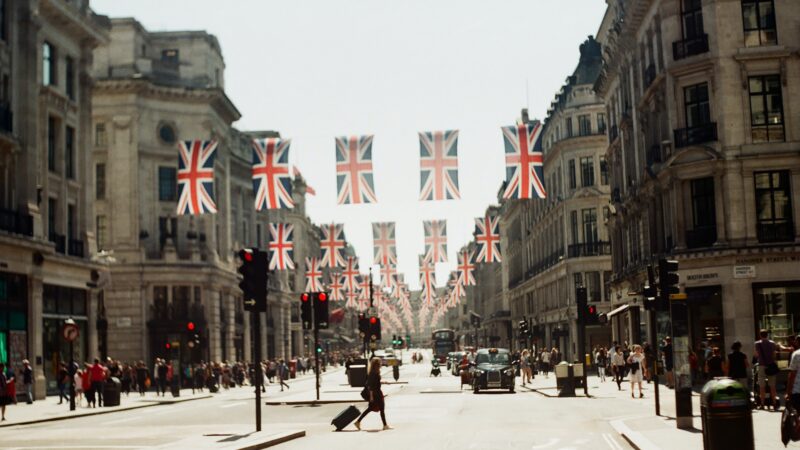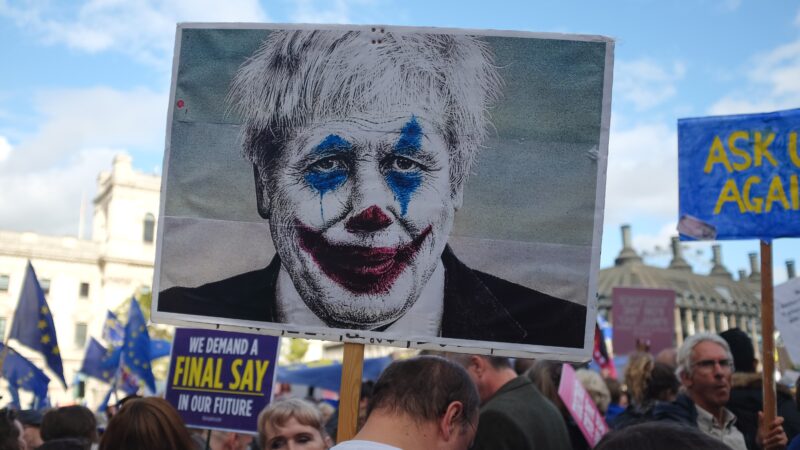Across England and Northern Ireland, riots broke out following the killing of three young girls in Southport. The accusations of two-tier policing that followed were expressions of a frustration that the police choose to be harder on anti-immigrant protestors than on pro-Palestine protestors or any protests initiated by similar causes.
By and large, accusations of two-tier policing are anecdotal, but that of course does not erase their existence or their validity. Putting aside the reality that ‘selective policing’ is a Marxist sociological-theoretical concept, the fact that academics have pointed to the existence of two-tier policing as a consequence of profiling (racial or otherwise), and that long-standing objections to stop-and-search focus on the discriminatory and (by extension) two-tier nature of the policing, the government and policing forces have denied two-tier policing.
Yet the most flagrant examples of an uneven application of the law seems to have come out of Belfast, where a judge “has warned that anybody present at a riot will be remanded in custody, even if they were only a ‘curious observer’.” It is not entirely clear why the judge feels that merely observing disobedience amounts to participation, but the consequences of this for journalists are yet to be fully explored. It would suggest that, unless a journalist observing a riot was to vehemently disown the riot, then they are unable to report on it taking place.
Where has this come from? How on earth could a judge have arrived at such a conclusion?
Two phrases have come to determine the Left’s attitudes towards the expression of “hateful comments”: first, “silence is violence”; and second, “it is not enough to not be racist, you must be anti-racist”, with “racist” of course being interchangeable with any sin you may think of or derive from consulting the Equality Act (2010).
The latter of these came most to the fore in the fever-dream era of Covid from 2020 to 2022, when many publications, writers and politicians condemned those who did not support, implicitly or otherwise, the riots conducted by Black Lives Matter:
To effectively defeat systemic racism — racism embedded as normal practice in institutions like education and law enforcement — you’ve got to be continually working towards equality for all races, striving to undo racism in your mind, your personal environment and the wider world.
In other words, you’ve got to be anti-racist.
Whilst many people agreed with or were at least sympathetic to the causes behind the riots, fashionable voices urged all who opposed those who disagreed with BLM’s principles (or actions, for that matter) to take action. It is not enough to not participate in racist behaviour, you must participate in anti-racist behaviour.
It was, without being subtle or pretending to be neutral, a call to action.
The former, meanwhile, has two similar impulses behind it, that make something seemingly nonsensical into a comprehensible idea. After all, how can silence be violent? The rational human understanding of violence is something active, something like hitting someone. I’m not of the opinion personally that speech is violence, but many are – yet even if we acquiesce to that premise, it does not address the point. How can silence be “violence”?
The answer, whilst it may seem unintelligent (and certainly unintelligible) actually derives from a paper written by Wilden in 1985, ‘In the penal colony’. In this paper, Wilden argues that violence expresses itself not just actively – being offensive or causing legally recognised forms of harm such as actual or grievous bodily harm – but passively as well.
Wilden’s paper rests on the intellectually-acrobatic argument that to not actively address circumstances and structures that do not allow for or facilitate an individual’s’ achievement of their highest form of potential is to be violent towards that person or persons.
Say, for example, a person benefits from the privilege of is class, but does not speak out in recognition of or opposition to that privilege, then he is not supporting the plight of those who such privilege works against. Silence is seen as a tacit support for the system that prevents some people from achieving their full potential and is therefore violent towards those people.
Silence, in this instance, is violence.
Now, the problems with this theory aside – least of all the epistemic difficulty of knowing what the ultimate achievement of someone’s ‘potential’ looks like – it seems to have been adopted by the Left wholesale, and even crept into popular vernacular. After all, mates don’t let mates perpetuate misogynistic attitudes, or so I’m told.
The most iconic image of these twin beliefs on the internet is of an unfortunate young man at a protest, holding a sign that recite the mantra of “silence is violence”. Yet, he is also wearing a shirt that says, “Why be racist, sexist, homophobic or transphobic when you could just be quiet?”
Typical responses to this picture fall into one of two camps. Either people look at it and mock him, asking how someone can be such an idiot as to say two contradictory statements in the same breath; or, they point out the hypocrisy, as if that the “typical Leftist” thing to do, to be inconsistent.
What these two responses miss is the very point: this is not about hypocrisy, or logic, but power and control.
The logical mind reacts in only one way. If one command is that you cannot say things you may believe (and some people certainly do believe things this man would call racist etc.), then you would prefer to say nothing. But if a countermanding command, then tells you that saying nothing is undesirable, you are left with one choice: to say what you are expected or demanded to say.
There is only one (acceptable) route out of this conundrum: the only way to not be violent is, apparently, to be positively affirming of whatever the oppressed do.
This logic lurks wherever the aggrieved assert themselves. For example, in the trans debate (and coincidentally the reason Professor Jordan Peterson shot to stardom), the expectation of the controlling logic above is that, even if you do not agree that a man can become a woman, you cannot say so, but you certainly cannot be silent about it, so to avoid being violent, you must affirm the identity of the person in question.
We may ask, why has this judge made this ruling now, if this belief has been so prevalent on the Left for so long? And surely judges are independent arbiters of the law? The only answer I can give is, it is never the fact of a Labour parliamentary victory that conservatives should be wary of, but the forces such a victory emboldens.
The judge’s ruling coming out of Belfast will have deep and far-reaching consequences for the policing of protests in this country – if only for the forces it will embolden.



